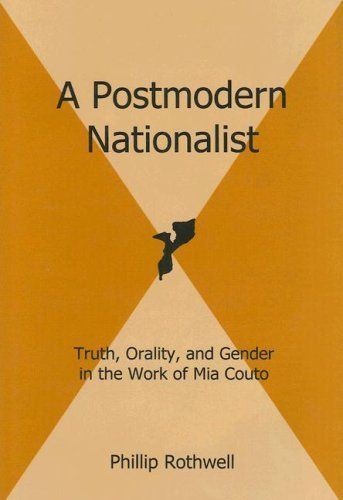
A Postmodern Nationalist Truth, Orality, and Gender in the Work of Mia Couto
"This is the first book in the English language devoted to the study of the work of Mozambique's leading contemporary author, Mia Couto. Couto's fiction is riddled by a central paradox - it forges a distinct postmodern national identity for a country historically plagued by repeated and detrimental interference from abroad. Phillip Rothwell argues that Couto is a writer who eschews and reinforces the national frontier. In fact, Couto produces a cultural phenomenon that is markedly Mozambican by corrupting aspects of the European legacy Portugal left on the African continent, fusing this distortion with a corrupted version of African heritage, and demarcating literary boundaries through fluidity." "The book details Couto's life and literary trajectory, and interprets essential aspects of Mozambican political and cultural history before undertaking a range of analyses of his work. The postmodern relativization of the concept of a unitary truth furnishes the springboard for an interrogation of what "truth" has meant to Mozambique as exemplified in Couto's texts. The paradoxes inherent in the politics of orthography are scrutinized in Couto's universe to illustrate the aporia prevalent in an atavistic reclaiming of a pre-Portuguese system of writing. Rothwell then engages with the moral meaning of orality and literacy in the tradition Couto both defies and defines, to demonstrate Couto's simultaneous disavowal of misographic and graphophile epistemologies. The manners in which Couto breaches the frontier between the conscious and unconscious realms and blurs gender distinctions are read alongside traditional delineations in order to understand the extent to which Couto's message is radically political. Rothwell concludes with a reading of one of Couto's most potent works in which, through an empowering attack on the United Nations' invasion of Mozambique, Couto enjoins his fellow nationals to begin to resist the postmodern age." "Couto's ambivalent use of the tropes of postmodernism are discussed throughout the book, particularly the way in which it has evolved into a political agenda that is fiercely Mozambican. Rothwell demonstrates Couto's reevaluation of Grand Narratives and shows how, in the case of the Mozambican culture of today, postmodernism has become the only Grand Narrative left worth critiquing." "Rothwell explores a broad cross-section of Couto's literary output, from his early short stories to his more recent novels. He places these within the context of a Mozambican and wider lusophone cultural backdrop, providing essential reading and source of reference for all interested in contemporary Portuguese, African, and world literatures."--BOOK JACKET.Title Summary field provided by Blackwell North America, Inc. All Rights Reserved